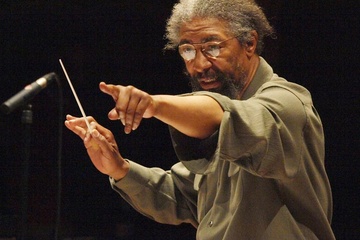There is a palpable buzz in Boston this week surrounding the World Series, which will feature the hometown Boston Red Sox versus the St. Louis Cardinals. Here on campus, it’s not hard to guess who we’ll be cheering for. But statistically speaking, which team has the higher chance of winning? FM decided to talk to Carl N. Morris, statistics professor and sports analysis guru.
A member of the Harvard statistics department for 23 years, Professor Morris was introduced to statistics as a child, reading box scores of baseball games in newspapers. Along with teaching statistics, Morris is also the faculty advisor for the Harvard Sports Analysis Collective, a student group devoted to analyzing sports statistics and management. Throughout his time at the University, Morris has worked directly with many students, including Dan Kantrovitz, the current St. Louis Cardinals Director of Scouting, who received his master’s degree from Harvard in 2009.
Morris used an algorithm to determine the odds of each team winning the World Series. He began by visiting betting websites and recording the odds each site placed on the outcome. Most sites favored the Red Sox, with chance of winning ranging from 52 percent to 60 percent. Since each site had different methodologies and agendas in listing certain odds, Morris’s emphasis wasn’t strictly on the betting line.
To supplement the gambling odds, Morris observed each team’s regular season records. Both teams won 97 games and lost 65, but behind those numbers lies a more telling story. While the teams may have had identical records, they played their games against different opponents. As the Red Sox played the majority of their games against opponents in the American League East—the winningest division in baseball—they had to overcome tougher opponents, in contrast to St. Louis which played in the comparatively weaker National League Central. Due to the srength of the Red Sox’s division, Morris gave them a leg up.
Morris also took into account home-field advantage. Since the American League won the All-Star Game this year, the Red Sox have home-field advantage for the Series, meaning if the best-of-seven series reaches a seventh game, it will be played in Boston. Statistically, Morris asserts that the home team in baseball has a 54 percent chance of winning a game (all else being equal), which once again favors the Red Sox.
After plugging in these numbers into his algorithm before the beginning of the Series, Morris gave the Red Sox a slight edge in the Series, putting their chances of winning at 55 percent. But because both teams competing in the World Series are talented and pretty evenly matched, Professor Morris says, “I won’t be surprised if either team wins.” Like many of us though, he’ll be cheering for the Sox to win it all.





